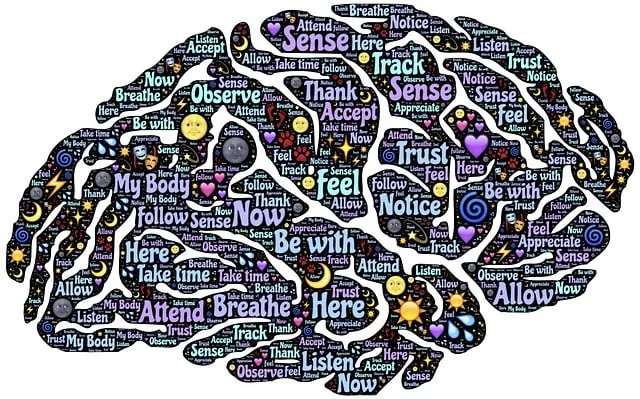Centenal, part of Kaiser's healthcare network, enhances mental health services through cultural competency training. This approach ensures holistic care tailored to diverse communities' unique needs. By integrating empathy-building strategies and offering specialized programs like trauma support and stress management workshops, Centennial improves patient outcomes and provider satisfaction. Regular evaluations track clinical outcomes, patient experiences, and healthcare providers' behaviors to refine the program for better mental wellness across cultures.
“Cultural competency training is transforming healthcare delivery, ensuring providers understand and respect diverse patient backgrounds. This article explores the essential concept of cultural competency in healthcare, highlighting Kaiser Permanente’s innovative approach to mental health services. We delve into how targeted training can enhance patient care, offering strategies for effective development. Additionally, we discuss measuring success through evaluation, emphasizing the impact on patient outcomes. Discover how Centennial Kaiser’s mental health services benefit from these training programs, fostering inclusive and quality care.”
- Understanding Cultural Competency in Healthcare: A Brief Overview
- Kaiser Permanente's Approach to Mental Health Services
- The Role of Training in Enhancing Patient Care
- Effective Strategies for Cultural Competency Development
- Measuring Success: Evaluating the Impact of Training Programs
Understanding Cultural Competency in Healthcare: A Brief Overview

Cultural competency in healthcare refers to the ability of providers to understand and appreciate cultural differences among patients, families, and communities they serve. It involves recognizing that cultural beliefs, values, and practices influence health behaviors, communication preferences, and expectations for care. This understanding is crucial in ensuring effective patient-provider interactions and improving health outcomes, especially for marginalized or underrepresented populations.
At Kaiser, a prominent healthcare provider like Centennial does offer mental health services as part of its comprehensive care portfolio. However, integrating cultural sensitivity into mental healthcare practice is essential to address the unique needs of diverse patient groups. By promoting cultural competency, healthcare organizations can prevent burnout among providers and foster an environment that supports mental wellness for all individuals, regardless of their cultural background or identity.
Kaiser Permanente's Approach to Mental Health Services

Kaiser Permanente, known for its comprehensive healthcare services, takes a holistic approach to mental health care. The organization recognizes that addressing mental wellness is integral to overall well-being and has implemented several initiatives to ensure effective support for patients. One notable aspect of their strategy involves empathy building strategies, which are incorporated into patient interactions. Healthcare providers are trained to foster an environment of understanding and compassion, allowing them to connect with patients from diverse backgrounds and cultural perspectives.
Centennial locations of Kaiser Permanente offer a range of services tailored to meet individual needs, including therapy, counseling, and support groups. Their focus extends beyond treating symptoms to promoting mental health improvement and self-esteem enhancement. By combining clinical expertise with a culture of care, Kaiser Permanente strives to create positive outcomes for the mental wellness of their patients.
The Role of Training in Enhancing Patient Care

Healthcare provider cultural competency training plays a pivotal role in enhancing patient care, especially when addressing diverse communities’ unique needs, including those with mental health concerns. Organizations like Kaiser Permanente, renowned for its comprehensive healthcare services, recognize the importance of such training. For instance, Centennial’s Kaiser offers robust programs focusing on both physical and mental well-being, ensuring that patients receive holistic care tailored to their cultural backgrounds.
This type of training equips professionals with empathy-building strategies, enabling them to connect more effectively with patients from various cultures. Additionally, it facilitates the implementation of community outreach program initiatives, fostering better risk management planning for mental health professionals. By integrating these approaches, healthcare providers can deliver exceptional care that respects individual differences, ultimately improving patient outcomes and satisfaction levels.
Effective Strategies for Cultural Competency Development

Cultural competency training is an evolving process that requires a multi-faceted approach. One effective strategy involves Centennial Kaiser’s comprehensive mental health services, offering a range of programs tailored to diverse communities. By integrating these services into their training curriculum, healthcare providers can gain deeper insights into addressing various cultural needs, especially in managing trauma and stress.
Additionally, incorporating Trauma Support Services and Compassion Cultivation Practices into the training program enables participants to develop emotional resilience and enhance their ability to connect with patients from different backgrounds. Regular Stress Management Workshops organized by the organization can also foster a supportive learning environment, allowing professionals to share experiences and learn from one another. These collaborative practices contribute to creating a more inclusive healthcare setting where cultural sensitivity is not just taught but practiced daily.
Measuring Success: Evaluating the Impact of Training Programs

Evaluating the impact of healthcare provider cultural competency training programs is a crucial step in ensuring their success and effectiveness. Organizations like Kaiser Permanente, known for its comprehensive services including mental health support at its Centennial location, have implemented such programs to address diverse patient populations. To measure success, training evaluations should go beyond simple satisfaction surveys.
A well-rounded assessment includes tracking changes in clinical outcomes, patient experiences, and healthcare providers’ behaviors and attitudes. For example, examining the referral rates for mental health services post-training can indicate improvements in cultural competency, leading to better stress management among patients. Mental health education programs designed with an emphasis on stress reduction methods can be evaluated through pre-post tests measuring knowledge gain and self-reported application of learned skills. Such comprehensive evaluations provide valuable insights into the program’s reach and influence, guiding future improvements for optimal patient care.
Cultural competency training is a game-changer in healthcare, especially regarding mental health services. As Kaiser Permanente’s successful approach demonstrates, understanding and embracing diverse cultural perspectives can significantly enhance patient care. By implementing effective strategies outlined in this article, such as comprehensive training programs, healthcare providers can navigate complex cultural landscapes, leading to improved patient outcomes and more fulfilling professional experiences. Evaluating the impact of these initiatives, as highlighted by measuring success, ensures that healthcare organizations like Kaiser continue to revolutionize mental health services for all, regardless of their background or identity.






